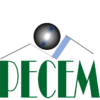The Graduate Program in Science Education and Mathematics Education – GPSEME, at the Universidade Estadual de Londrina – UEL, was approved in 2001 by CAPES, at the level of Academic Master’s degree, to meet the demand for the training of teachers/researchers (Stricto-Sensu) in the field of Science Education and Mathematics Education to work at different levels of education. The team that created the initial proposal was composed of faculty members from various departments (Physics, Mathematics, Biology, History, and Philosophy) who had already been involved in teacher/researcher training through Lato-Sensu postgraduate programs, and various continuous education programs that formed the core of this program, namely the Scientific Dissemination Network of Northern Paraná – SDNNP, Pró-matemática (Brazil-France agreement), among others, which enabled joint production and the necessary infrastructure for the development of its investigations.
The Academic Master’s degree modality was, at the time, an innovative initiative in the state of Paraná and became a strong knowledge-generating hub, later exerting significant influence on the training of professionals from Paraná, other southern states of Brazil, the northwest of São Paulo state, and the south of Mato Grosso do Sul. Thus, following the impact of the master’s program in Science Education and Mathematics Education, a doctoral program was proposed and approved in 2007 as a necessary step for consolidating research in these areas and for establishing new practices and methods aimed at producing knowledge and training teachers/researchers.
In recent years, GPSEME has contributed to the construction of knowledge and the training of university professors and Basic Education teachers, as well as Brazilian and international researchers, many of whom have had a significant role in the establishment and coordination of other postgraduate programs, and in producing knowledge in the field. In the CAPES quadriennial evaluation (2017-2020), the program maintained a grade of 7 (seven) – the highest possible grade.
General Aim
To train researchers/teachers in the field of Science Education and Mathematics Education to work at all levels of education and develop research that leads to a deeper understanding of the creation/construction of teacher/student knowledge in the teaching-learning process within the areas of knowledge relevant to the program.
Specific Aims
1. Develop reflections on the teaching and learning processes in Science and Mathematics, investigating the forms, models, strategies, methodologies, and approaches that enable the appropriation of scientific and mathematical knowledge.
2. Contribute to the teaching and learning of Science and Mathematics through investigations and reflections on the epistemological, social, and cultural foundations of school knowledge and scientific and mathematical knowledge.
3. Investigate the use of various teaching materials (texts, equipment, experiments, games, videos, and software), as well as new technologies (microcomputers, internet) in the construction of school knowledge in the teaching/learning of Science and Mathematics.
4. Investigate how different spaces (classrooms, laboratories, science centers, and museums) influence the development of school knowledge.
5. Seek to build effective solutions to issues raised by teaching practice, through the investigation of real classroom problems at all educational levels, and integrated and interdisciplinary reflection among the areas involved.
